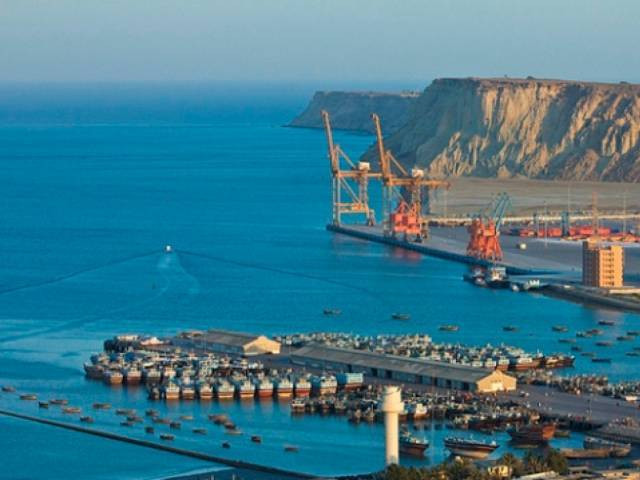CPEC hampered by power crisis, weak infrastructure
Speakers urge strengthening of regional connections

PHOTO: REUTERS
This was stated by speakers on the second day of the three-day 19th Sustainable Development Conference organised by Sustainable Development Policy Institute in Islamabad on Wednesday.
PM approves appointment of CPEC coordinator
Speaking at a session on ‘Challenges of conflict and services delivery in South Asia’ Awami National Party (ANP) Afrasiab Khattak stressed for strategic planning to weed out terrorism and extremism from the society. He said that Pakistan was a security state where extremism was still flourishing due to the wrong policies of the state.
Pointing out the growing debt burden, and an increasingly hostile neighbourhood, he said there was a need to review the country’s position.
“It is time to rethink our position and Pakistan should realise the importance of cooperating with countries apart from China such as Iran, Afghanistan, Russia and India,” he said.

World Bank Regional Advisor Haroon Sharif said that due to massive global political shifts like Brexit and Trump-effect, trade patterns were changing.
“People need to think differently, promote leadership roles in the region and rise above the traditional narratives,” he said.
Afghanistan’s Ambassador Omar Zakhilwal emphasised on the importance of regional connectivity, especially from Afghanistan’s perspectives and how it could open up Central Asia for Pakistan and South Asian countries.
CPEC challenge and opportunity
Asian Development Bank’s Chief Economist Guntur Sugiyatro asserted that CPEC was indeed a game changer for Pakistan. However, he identified problems which hinder growth and cooperation such as energy crisis, low investment, weak infrastructure, low tax returns (less than 10% of the GDP) and a lack of experts and professionals in the relevant sectors.
Overseas Development Institute’s Irina Mosel stressed the need to look beyond physical markets. She said that humanitarian aid, whether in cash or in kind, had profound and potentially long-lasting impacts on market systems.
Zhana Babagaliyeva from Tajikistan said remittances were the key source of development hindered by external factors like economic crisis, irrational use of land and water, rapid rise of population, limited access to basic services, decline in enrolment rate in higher education facilities and high mortality and morbidity rates.
Published in The Express Tribune, December 8th, 2016.



















COMMENTS
Comments are moderated and generally will be posted if they are on-topic and not abusive.
For more information, please see our Comments FAQ